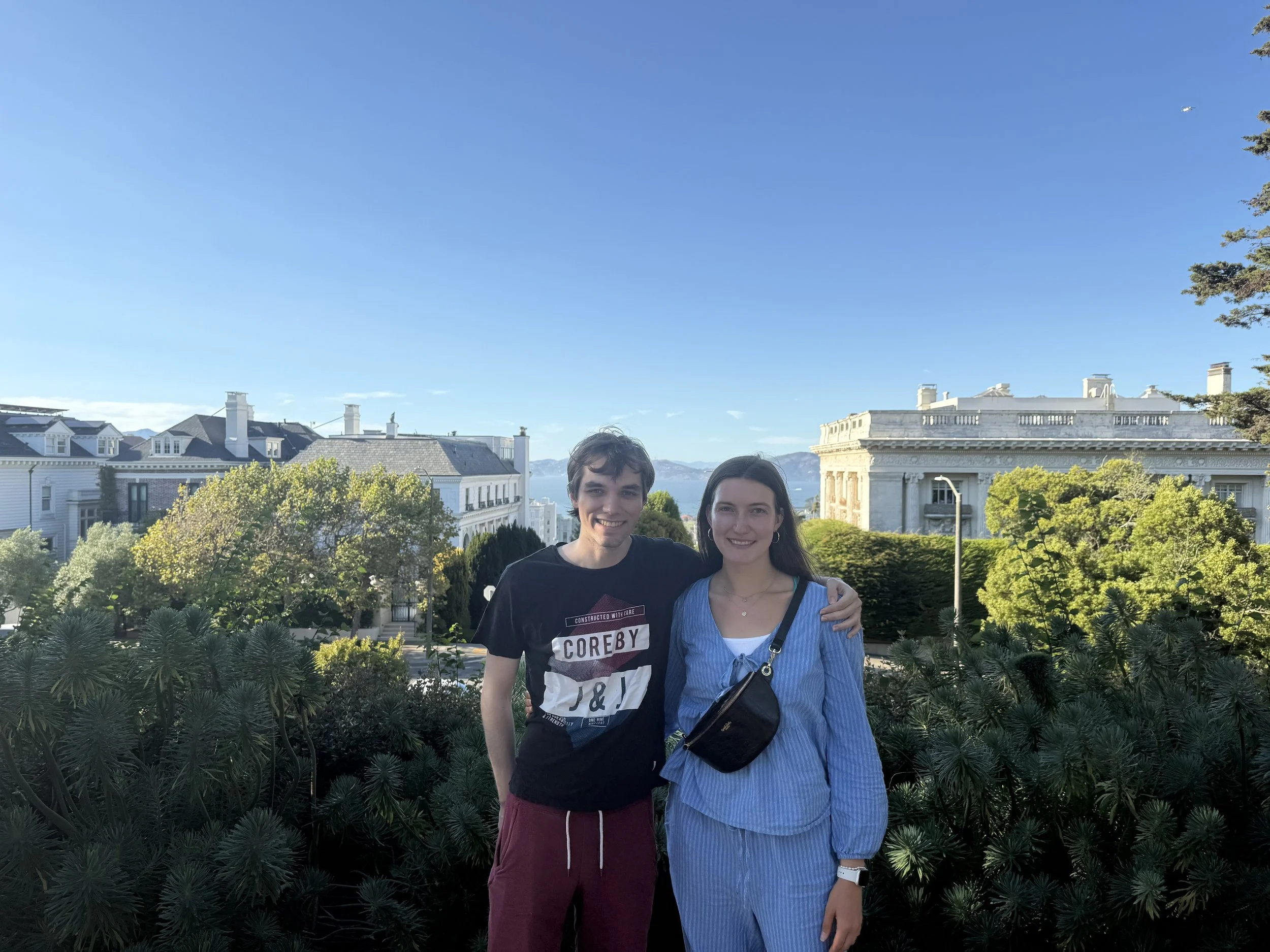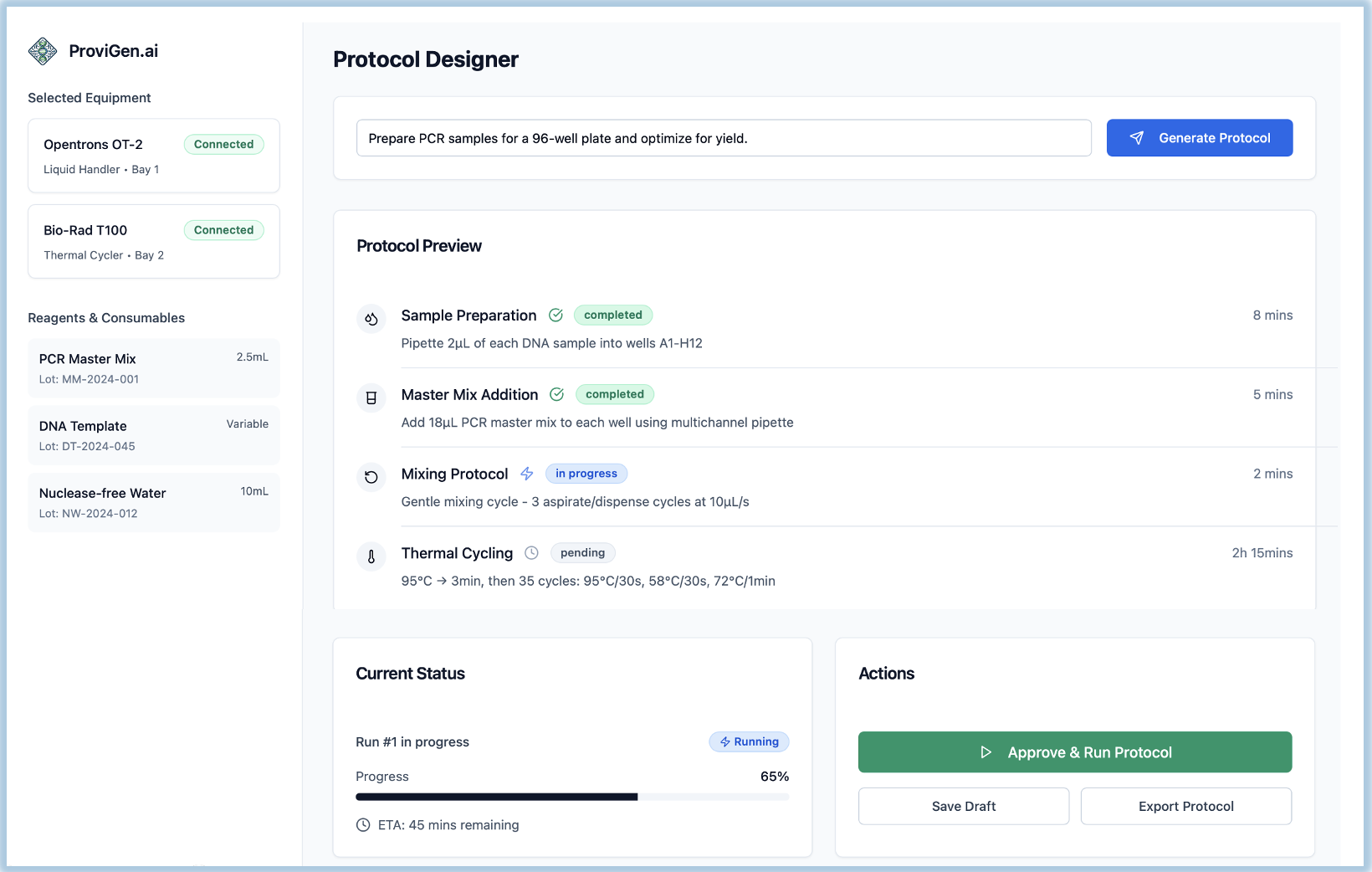Building the Future of Automated Bio Labs: Key Lessons from ProviGenAI’s Biofounders
One of the standout startups in this year’s VCL 2025 Cohort comes from TU Munich (Technical University of Munich): Lucas Mair and Magdalena Lang, two medical school students who are using Artificial Intelligence (AI) to tackle one of the industry’s biggest pain points: inefficient lab workflows. Through their startup, ProviGenAI, they’re not only streamlining experimental processes, but also showing how the next generation of student biofounders is thinking, building, and scaling a biotech startup.
Lucas Mair didn’t start out thinking he’d become a startup founder. His early years were rooted in computer science. But a university exchange to the National University of Singapore (NUS) opened his eyes to synthetic biology. He was hooked, and it led him to pursue an M.D.–Ph.D. at TU Munich, where he also got involved in the iGEM TU Munich as a team instructor, in which he bridged conversation between students and their PI.
Magdalena Lang began her medical studies at TU Munich, but her curiosity led her toward tackling problems in the field beyond clinical practice. She gained her first business exposure as a founder’s associate at a MedTech company, where she saw how the commercial and scientific worlds intersect, and continued as a VC Trainee at Innovis VC, a venture capital firm with offices across eight locations in Europe, investing in early-stage technology and life science startups.
The Origin of ProviGenAI
Lucas and Magdalena first met through friends at medical school, where a lighthearted conversation revealed they shared common ground: neither of them wanted to become a practicing doctor. They also shared a frustration with how repetitive and time-consuming lab experiments could be. “If making a car or working in other industries can be automated,” they thought, “why not automate synthetic biology, too?” That question sparked their first idea, which they began solving by joining E-Lab, a startup accelerator program by TUM.AI, a student initiative by TU Munich exploring AI’s potential across industries, and the iGEM Startups Venture Foundry Program, in 2025.
Through these initiatives, they gained access to accelerators, pitch training, and an industry network. Most importantly, they learned a key startup lesson early: Don’t start by building a product, start by understanding your customer’s pain points. ProviGenAI is a startup working on creating autopilot for self-optimizing bio labs.
From Munich to San Francisco: ProviGenAI’s Bi-Continental Startup Playbook
Building on the connections and insights they gained, and after a series of networking sessions in Munich, their first major opportunity came through an industry partner working in high-throughput screening with robotic lab automation. They used this setting to test ProviGenAI’s algorithms for autonomous experiments. This first market validation gave them the confidence to step into the fundraising stage.
ProviGenAI’s user interface for protocol design in automated lab equipment
ProviGenAI is gearing up for a first seed investment round, aiming to secure early funding to scale its robotic infrastructure. The company is registered in the United States for easier investor access, while maintaining a German subsidiary to tap into local talent. Currently, ProviGenAI is in the process of partnering with shared lab spaces, OEMS of robotic lab equipment, and collaborating with startups working in related fields.
Key Takeaways from the ProviGenAI Founders for Aspiring Biofounders
To ProviGenAI, networking wasn’t just a nice-to-have, it was the engine of their progress. The TUM.AI community gave them their first investor introductions, and it pushed them to dive into local biotech meetups, where they met potential partners and mentors. In 2025, they joined the iGEM Startups Venture Foundry Program to further expand their network and refine their pitch before entering full fundraising mode.
In biotechnology, they quickly learned that cold outreach rarely works. The real breakthroughs came from in-person conversations and trusted referrals. Each interaction was an opportunity to find the “needle in the haystack”; those rare stakeholders willing to take risks and try new approaches.
After a year filled with networking, iterations, and lessons learned, Lucas and Magdalena have distilled their experience into a few core principles for early-stage student founders:
Step outside your field
Don’t limit yourself to your area of study. Join initiatives outside your comfort zone to broaden your perspectives and skill set. (Just like Magdalena, who became the only medical student during her internship as VC trainee; her eyes to the bioentrepreneurship world.)Leverage your network and student status
Before you build, understand the real pain points. Get involved in networking sessions, tap into your university’s connections, from your PI to student initiative like TUM.AI and pre-accelerators, like iGEM Startups. Don’t underestimate the advantage that the reputation of your school can bring when opening doors.Build a high-value demo
Early prototypes are fine for testing ideas, but industry adoption demands more. In biotech, aim for an industrialization-ready demo that clearly shows tangible value.Invest in your personal brand as a founder
One key difference they observed between Europe and the US: European investors often focus heavily on traction, while US investors also value the founder’s personal brand. Storytelling, visibility, and positioning yourself as a thought leader can make a real difference when it’s time to fundraise.
ProviGenAI is still early in its journey, but the momentum is building. With their combination of technical expertise, business awareness, and strong networks, Lucas and Magdalena are proving that student founders can take on some of biotech’s toughest challenges.
Their story is a reminder: The future of biotech won’t just come from established companies. It will be built by students who dare to turn their ideas into real-world impact.
Join us to watch their pitches at the Startup Showcase, happening October 30, 2025, at the Paris Convention Centre, as part of the 2025 iGEM Grand Jamboree. Get your tickets at jamboree.igem.org.








